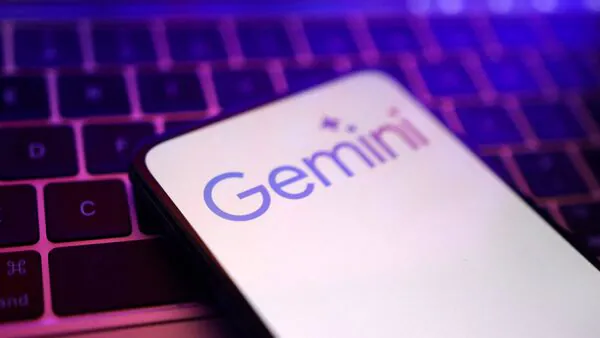A New Age of AI Access for Young Minds
Google has opened a significant chapter in the story of artificial intelligence by making its chatbot, Gemini, available to children under the age of thirteen in the United States. This development brings advanced conversational AI to a younger audience than ever before. The company is extending this access across Android phones, iOS devices, and web platforms, ensuring that children can interact with Gemini through a variety of mediums. As a major tech company, Google is framing this as a response to increasing interest among parents, educators, and child development professionals who see tremendous educational potential in AI when used in safe, structured environments.
By offering Gemini to preteens, Google enters territory that has traditionally been approached with caution. Digital tools for children usually face tight restrictions, especially when it comes to privacy, data use, and content appropriateness. However, Google’s approach suggests a careful and considered rollout. Built-in safety features and parent-controlled settings are intended to safeguard younger users while still offering the benefits of an intelligent assistant that can help with schoolwork, encourage creativity, and satisfy curiosity.
While children today are no strangers to technology, interacting with a conversational AI represents a fundamentally different experience than using standard apps or browsing the internet. Gemini is designed to be a tool that not only responds to queries but also engages in back-and-forth conversation. This opens up opportunities for learning that are more interactive, fluid, and personalized than many traditional educational technologies.
Designed to Educate and Inspire
Gemini is being positioned as more than just a chatbot. For younger users, it becomes a kind of digital learning companion. It can help explain complex topics in a simplified way, support daily homework assignments, and serve as a springboard for creative writing and storytelling. Children can ask Gemini questions about science, history, or literature, and receive tailored responses that attempt to match their level of understanding. The goal is not to replace human teachers or parents but to supplement a child’s learning with a resource that is always available and ready to assist.
One of the core strengths of AI like Gemini lies in its ability to generate creative content on demand. A child with an idea for a story but unsure where to begin might use the chatbot to brainstorm characters, plotlines, or settings. For those who struggle with writing, Gemini could serve as a gentle guide, offering suggestions and feedback in real-time. This kind of assistance could prove especially helpful for children who find traditional classroom learning environments overwhelming or rigid.
The AI’s ability to adapt its language and tone based on the user’s input means it can respond in a more age-appropriate way than static sources of information like textbooks or search engines. For example, if a child asks why the sky is blue, Gemini might provide a short and simple explanation rather than launching into a lengthy scientific discussion. The AI adjusts its responses based on the style and complexity of the question asked, which creates a more user-friendly and engaging learning experience for young minds.

Acknowledging the Limitations
Although Gemini brings new possibilities for learning and creativity, Google has made it clear that the AI is not infallible. Like all generative models, Gemini can produce answers that are partially correct, completely wrong, or misleading if taken at face value. This is particularly important when children are involved. Young users are more likely to assume that technology is accurate, so a false or biased response from the AI could lead to confusion or the spread of misinformation.
To address this, Google is incorporating language within Gemini’s interface that reminds users—especially children—that the chatbot is not a real person and doesn’t possess feelings or consciousness. It is a simulation of conversation, not a sentient entity. Children are being encouraged, either directly by the interface or through guidance from parents and educators, to verify critical facts using trusted resources. The idea is to create a sense of digital literacy from an early age, teaching children not to blindly accept every answer they receive online, even from sophisticated AI.
Understanding that AI can make mistakes is a lesson in itself. It teaches children the importance of skepticism, the need to cross-check information, and the value of human judgment. When used under appropriate supervision, Gemini could foster healthy habits of inquiry and discernment that will serve young users throughout their digital lives.
Building in Safety from the Start
Bringing artificial intelligence tools into the hands of children is a delicate undertaking, and Google is clearly aware of the responsibilities involved. To support safe usage, the company is leveraging its existing Family Link platform. Family Link is a suite of tools that allows parents to manage their child’s Google account, monitor app activity, and control access to digital content. With Gemini now integrated into this framework, parents can observe how their children interact with the AI, see what kinds of questions they are asking, and make informed decisions about access and boundaries.
Family Link provides tools such as activity reports, which give insights into how frequently and in what manner Gemini is being used. It also allows for the setting of daily time limits, ensuring that children are not spending excessive amounts of time chatting with the AI at the expense of other healthy activities. For families with multiple children, or varying levels of tech maturity, Family Link enables individualized settings, giving each child a different level of access based on age and responsibility.
In addition to tools for parents, educational institutions are also being given oversight options. Students who use Gemini through school-managed Google accounts are subject to administrative controls. School IT teams can configure which features are available, monitor usage for inappropriate content, and ensure that the AI is aligned with educational goals. This institutional control makes it more feasible to integrate AI into the classroom, where it can be used in lesson plans, group projects, and personalized learning initiatives without risking exposure to content or behaviors that may not be age-appropriate.
Crafting Digital Boundaries
In designing Gemini for children, one of Google’s main challenges is creating a system that can engage naturally while still operating within strict boundaries. The AI must be able to understand and respond to a wide range of prompts without generating content that is harmful, inappropriate, or too complex for young users. This involves layers of content filtering, conversational guardrails, and feedback systems that allow developers to adjust responses based on user interactions.
Gemini’s design reflects an effort to strike a balance between usefulness and restraint. The chatbot is not meant to act as a friend, therapist, or emotional support system. Its conversational nature might make it feel personable, but it is programmed to avoid engaging in discussions about personal identity, relationships, or emotions beyond a certain depth. This ensures that the child’s interactions remain focused on learning, creativity, and safe expression.
Parental education is also an essential part of the rollout. Google is sending out communications to parents that explain what Gemini is, what it can do, and what it cannot do. These messages emphasize the importance of adult supervision and digital literacy. They also make it clear that while Gemini can be helpful, it is not a substitute for human engagement. Children still need parents, teachers, and peers to provide social connection and emotional support.
Encouraging Responsible Curiosity
One of the most promising aspects of Gemini’s availability to children is its ability to fuel curiosity. Young minds are naturally inquisitive, often asking questions that adults may find difficult to answer on the spot. Having access to an AI that can handle these questions in real time—within safe boundaries—can create a more encouraging environment for exploration and learning. Children can ask about topics as diverse as outer space, ancient civilizations, the mechanics of flight, or the lifecycle of animals. Each question becomes a starting point for further learning.
Gemini’s responsiveness creates a sense of engagement that static content often lacks. Instead of reading a page of text, children can ask follow-up questions, explore tangents, and develop conversations that help deepen their understanding. This kind of interactivity makes learning feel more alive. It also allows children to take control of their educational journey, deciding what topics they want to explore and how far they want to go.
At the same time, using AI for exploration helps children learn how to ask better questions. They begin to understand how the phrasing of a query affects the type of answer they receive. This encourages precision in language, curiosity about word meanings, and awareness of how information is structured. These are valuable skills that transfer beyond the AI interface and into broader academic and social development.
A Tool for the Next Generation
The decision to allow children under thirteen to use Gemini represents a shift in how technology companies view the role of artificial intelligence in childhood development. Rather than treating AI as an adult-only tool, Google is acknowledging that children are already digital natives. They are growing up in a world where conversational interfaces, smart devices, and online learning are becoming standard parts of daily life. Denying them access to these tools may be unrealistic; instead, the focus must shift to teaching them how to use AI responsibly and safely.
By introducing Gemini in a controlled and supervised manner, Google is attempting to provide a model for how advanced technologies can be integrated into childhood experiences without exposing young users to undue risks. The presence of parental controls, school oversight, and conversational filters is intended to create an ecosystem where AI supports growth rather than undermines it.
Ultimately, the rollout of Gemini to younger users is about more than just giving children access to a new app. It is about creating a platform where curiosity, creativity, and knowledge can thrive—while still keeping safety, supervision, and responsible usage at the forefront. As the digital landscape continues to evolve, this approach could serve as a model for how AI and childhood can coexist productively.



 Viesearch - The Human-curated Search Engine
Blogarama - Blog Directory
Web Directory gma
Directory Master
http://tech.ellysdirectory.com
8e3055d3-6131-49a1-9717-82ccecc4bb7a
Viesearch - The Human-curated Search Engine
Blogarama - Blog Directory
Web Directory gma
Directory Master
http://tech.ellysdirectory.com
8e3055d3-6131-49a1-9717-82ccecc4bb7a